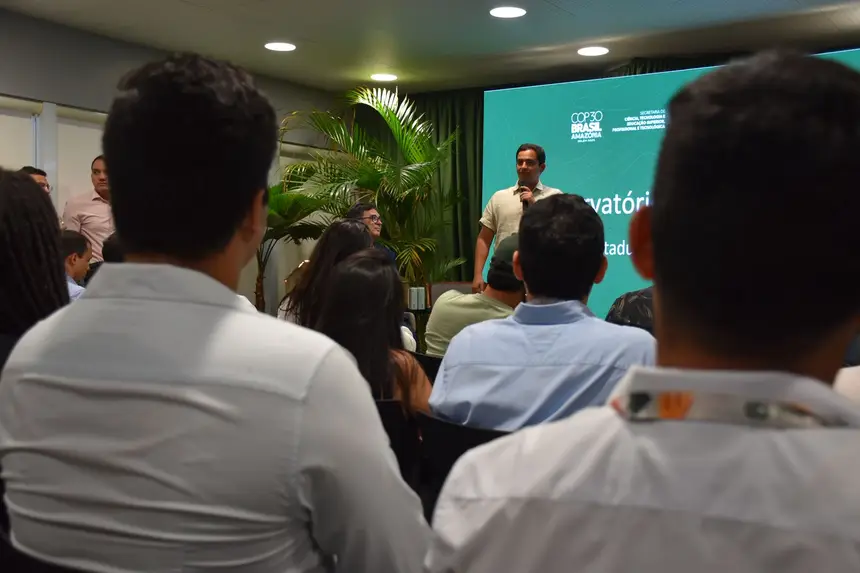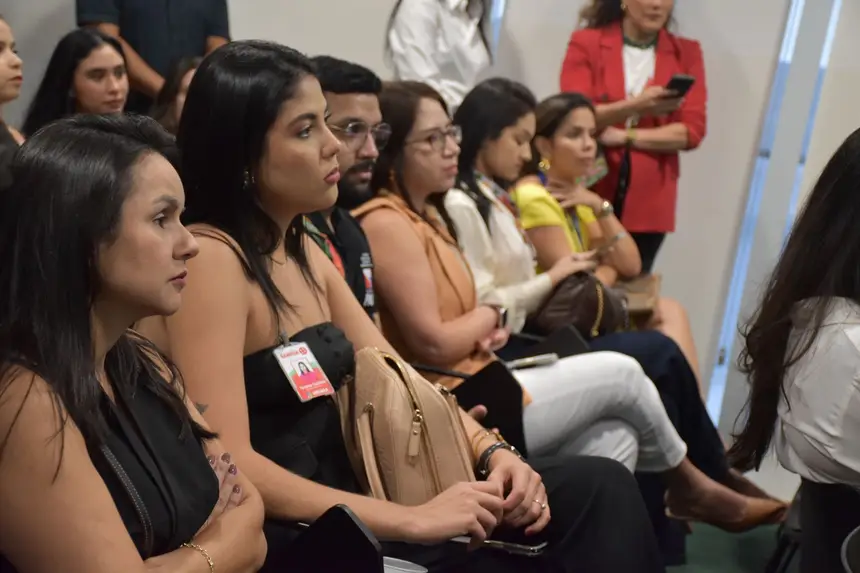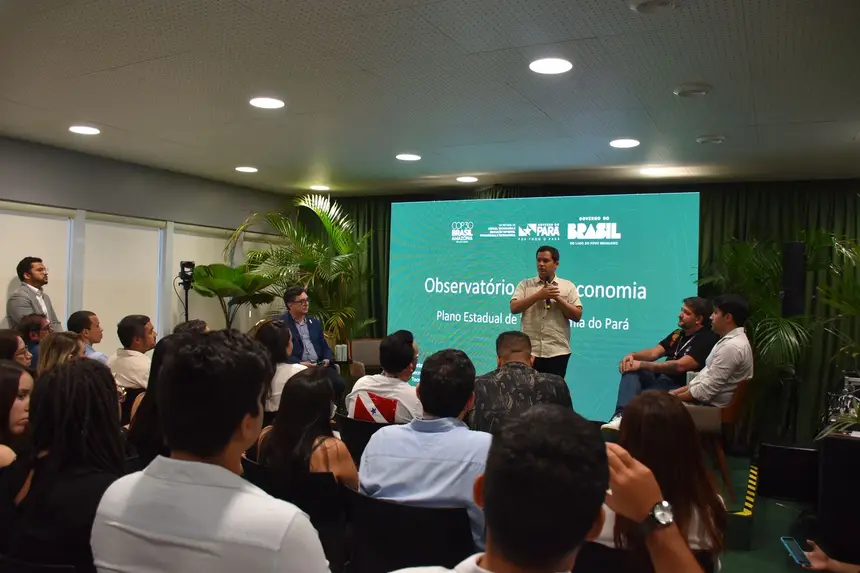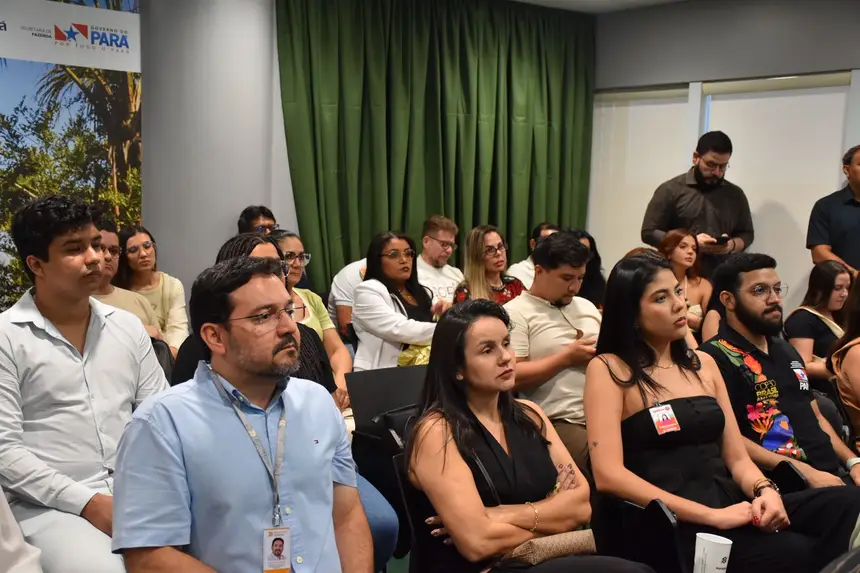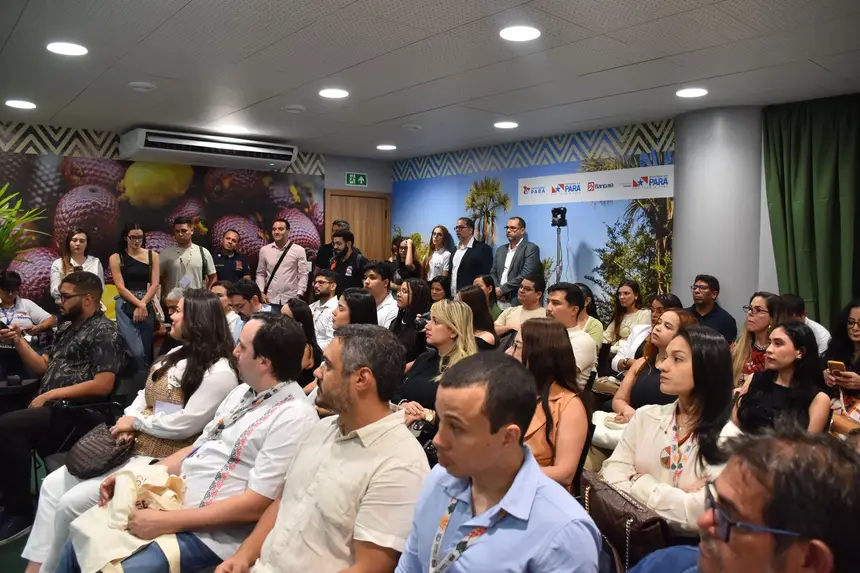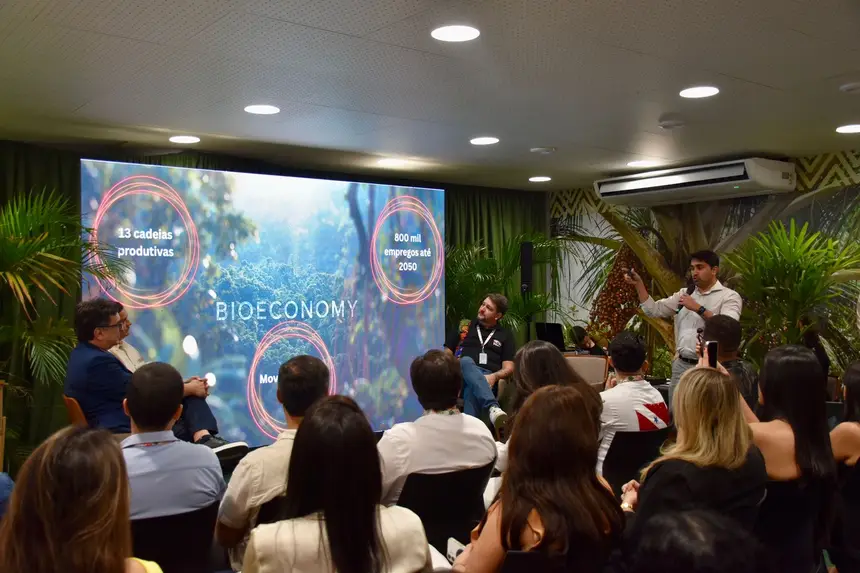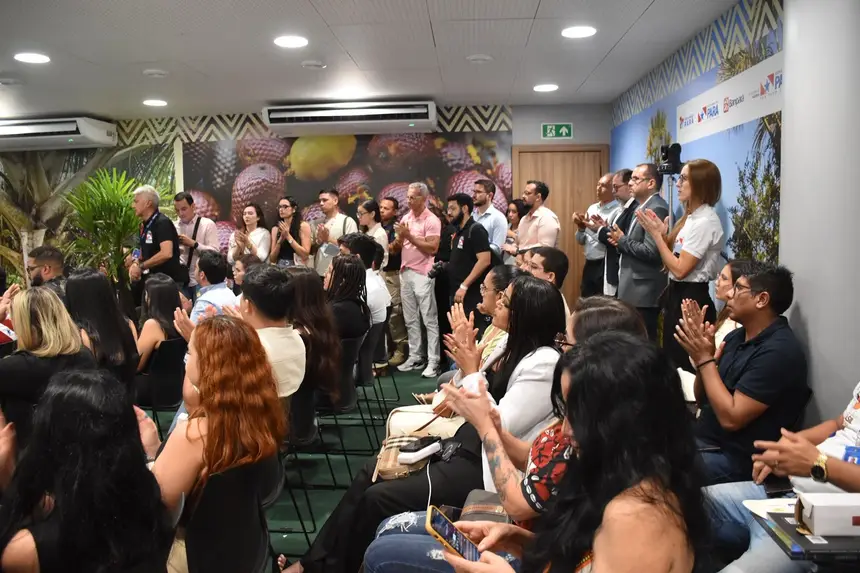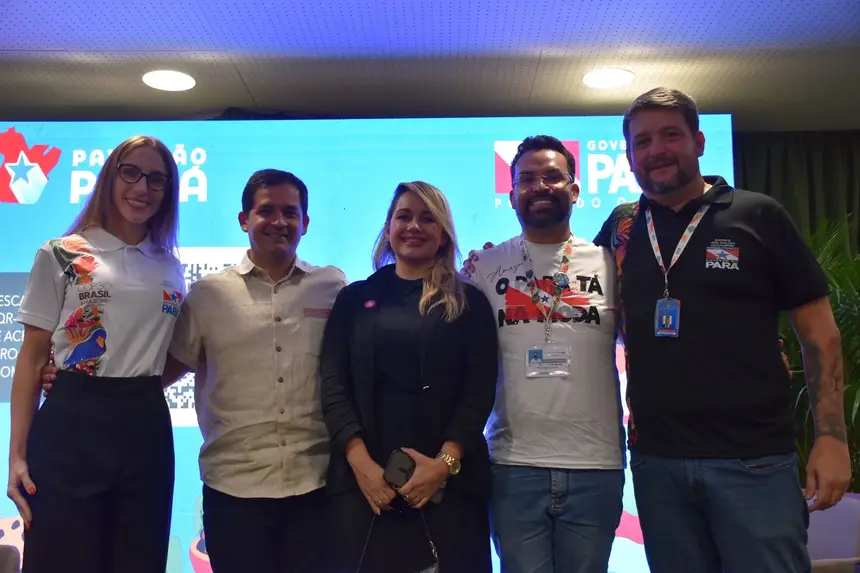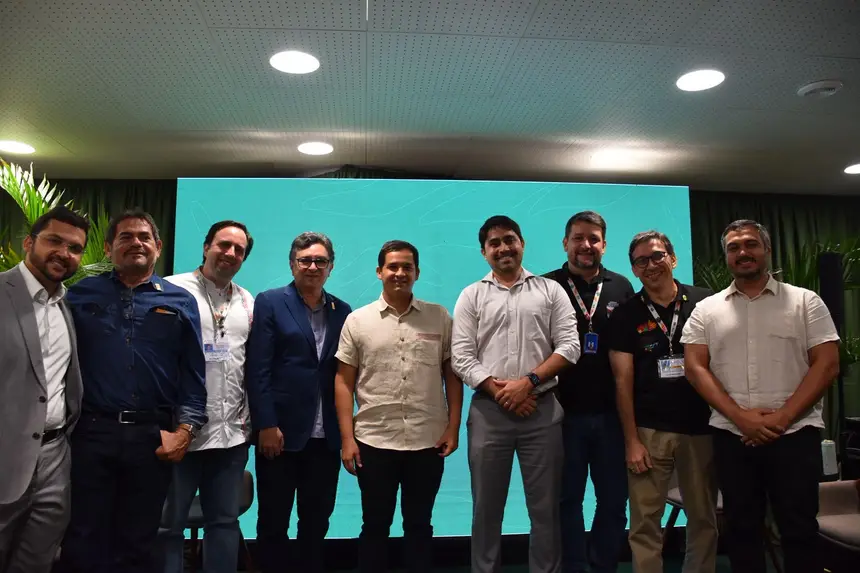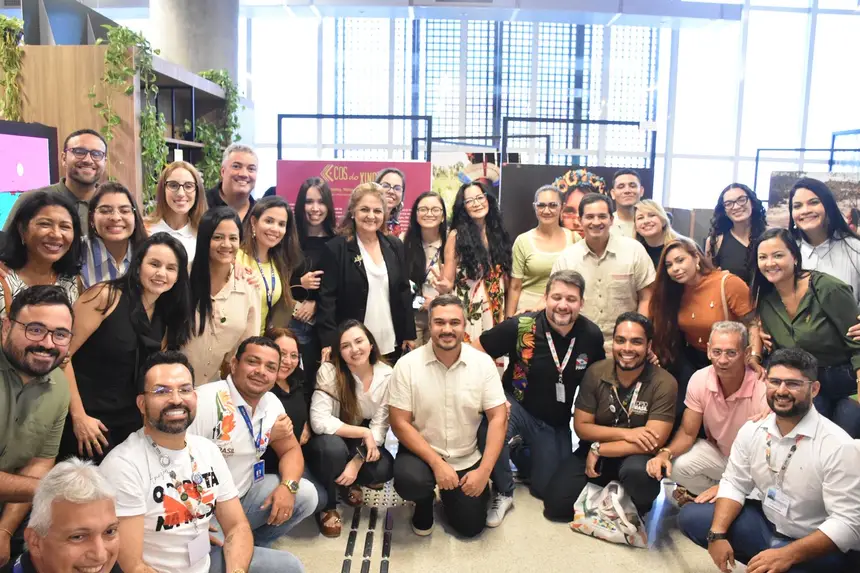SECTET presents Bioeconomy Platform at COP30's Greenzone
The Secretariat of Science, Technology and Professional and Technological Education (Sectet) presented, on the afternoon of this Wednesday (19), during the COP30 program, the launch panel of the "Bioeconomy Observatory" platform.
The tool is part of the State Bioeconomy Plan of Pará and gathers data produced by different secretaries and institutions, such as Embrapa and the Zoobotanical Park of the Museu Paraense Emílio Goeldi, enabling an integrated reading of strategic information on sociobiodiversity and Amazon conservation.
The panel featured the participation of professor and technician from the Guamá Technological Park, Dr. Rommel Ramos, the technical director of the Guamá Foundation, Renato Francês, Secretary Victor Dias, and the deputy secretary of Sectet, Keynes Silva.
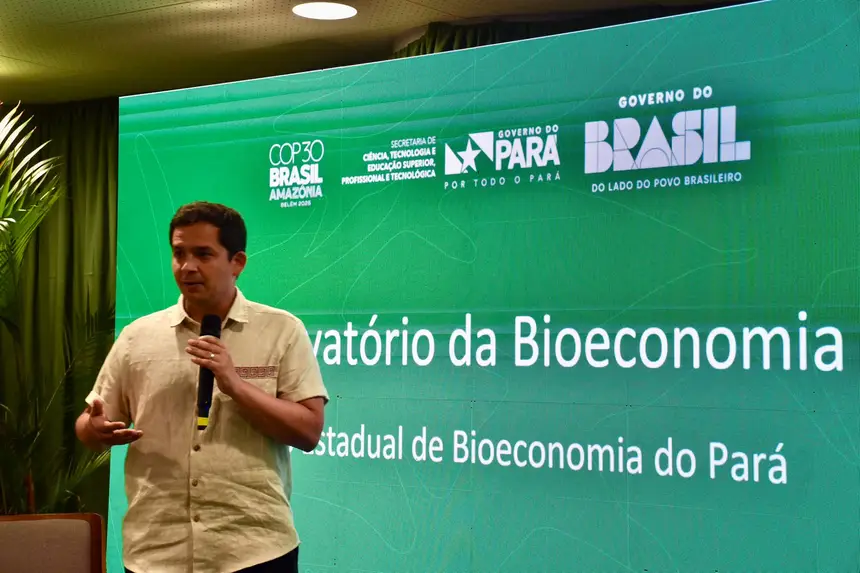
The platform will function as an interactive chat accessible to the public, allowing inquiries about research, projects, and studies related to bioeconomy. The information is fed by agencies such as SEFA, Adepará, and Fapespa, in addition to Sectet itself. According to Secretary Victor Dias, the Observatory represents an important advance for public management and for democratic access to knowledge.
"The information is generated automatically, based on data fed by Sectet and the partner institutions that are part of the State Bioeconomy Plan. The importance is that, in addition to online consultation, the observatory will initially implement consultation totems in the bioeconomy park and in the PCT Guamá. With this, we can give more agility to management and improve public policies in favor of bioeconomy," he stated.
The launch occurs in synergy with the Amazon Bioeconomy and Innovation Park, recently inaugurated by the Government of Pará, recognized as the largest bioeconomy hub in Latin America and the only technological park in the world dedicated to forest bioeconomy.
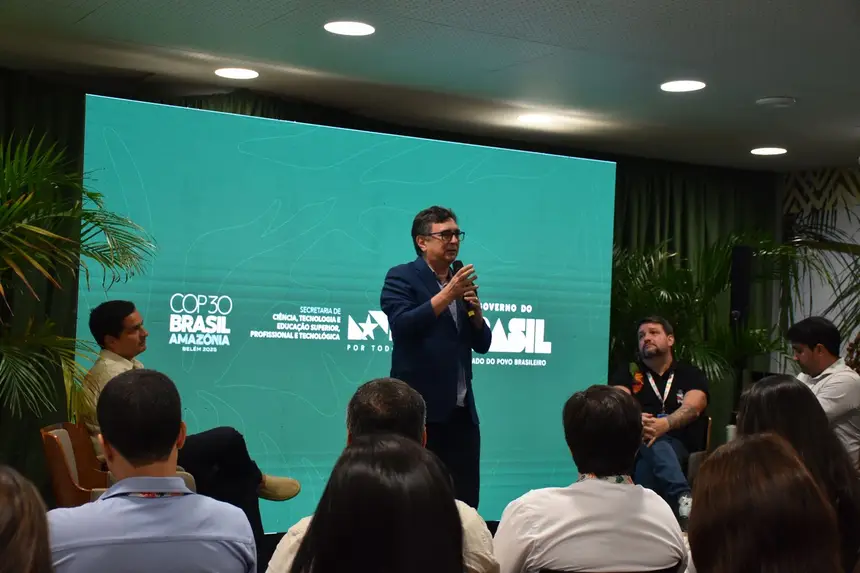
For panelist Renato Francês, the credibility of the platform lies in the rigor of the information gathered. "The importance of the platform is that these are real data and not data created and consulted by artificial intelligence. For scientific studies, it is essential to ensure that research and projects are present in this database and can be consulted safely," he emphasized.
Responsible for managing the platform within the Guamá Park, professor Rommel Ramos emphasized that the Observatory advances by centralizing previously dispersed content. He explained that the system now accesses, translates, and correlates scientific studies, significantly expanding the reach of analyses. "The idea is to integrate all the information generated by different actors linked to bioeconomy, allowing the correlation of data that were previously decentralized. The magnitude of the project lies in our ability to truly integrate the entire state. As we gather a large volume of articles, projects, and reports, the trend is that the system will provide increasingly qualified answers on the subject," he stated.
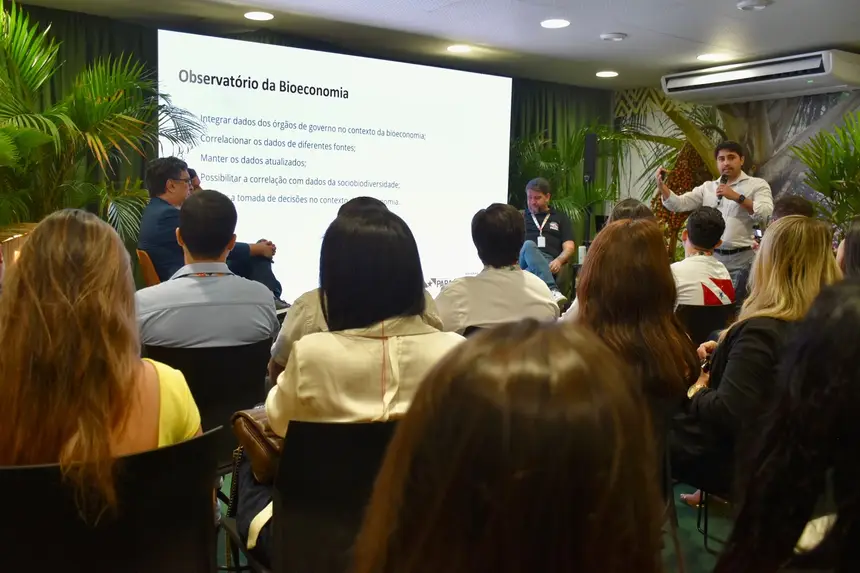
With the Bioeconomy Observatory, Sectet reinforces its commitment to democratizing access to scientific and technical knowledge, bringing together producers, managers, and researchers through a simple, accessible language aligned with the current and future demands of the Amazon.
Text: Carla Couto/Ascom Sectet


